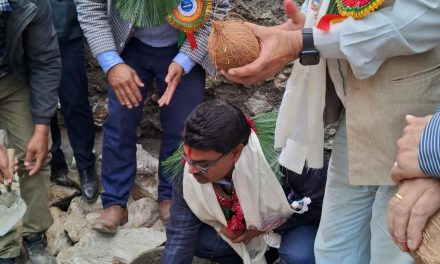Agency. Spain’s government on Thursday said a batch of faulty Covid-19 testing kits it had been forced to return had been acquired through a domestic supplier and not directly from an unlicensed Chinese company as the Asian nation’s embassy said.
Spain’s efforts this week to roll out 640,000 rapid testing kits, mainly made by companies in China and South Korea, hit a setback when the first order of around 9,000 failed to meet specifications and had to be returned.
The Chinese embassy said the Spanish government had purchased the items from an unlicensed company called Shenzhen Bioeasy Biotechnology.
But the Spanish health ministry later released a statement saying the products had been supplied through a supplier in Spain, which had imported them from China.
It said the products bore the CE mark, meaning they conformed with European Union standards.
The statement said the order had not been part of the 432-million euro ($466m) contract with China that the Spanish government announced Wednesday, which would include the delivery of 5.5 million testing kits.
The head of Spain’s public health emergency department Fernando Simon confirmed in his daily briefing that the first batch of kits delivered to the country had been sent back to the provider, although he did not name the company in question.
The Spanish association of microbiologists (SEIMC) warned that the testing kits in this batch performed with an accuracy level of under 30 percent.
SEIMC spokeswoman María del Mar Tomás told Efe: “With this level of accuracy it is impossible to put them into routine use.”
Spain’s death toll hit 4,089 on Thursday, 655 more than the previous day as the number of confirmed cases rose to 56,188, almost 32,000 of which are active.
It was however the first time the number of daily deaths decreased this week and came a day after health authorities reported 738 deaths in just 24 hours, which saw the country surpass China in terms of Covid-19 fatalities.
Health authorities confirmed Wednesday that 7,015 people had been discharged from hospital since the outbreak began, while 31,912 were still receiving hospital treatment and 3,697 were in ICU.
The nationwide recovery rate stood at 12.5 percent, higher than the fatality rate of 7.2 percent, which has stabilized in recent days and could indicate that the country was approaching a peak in cases, health authorities said, adding that the percentage increase of new infections per day had dropped to an average of 20 percent from 40 percent earlier in the outbreak.
“If this general trend is confirmed, it would indicate that the number of confirmed cases could be reaching its maximum, what we colloquially refer to as the peak in the curve,” health minister Salvador Illa said.
Spain remains the fourth-worst hit country in terms of confirmed coronavirus cases behind China, Italy and the United States and the second-worst in terms of fatalities behind Italy, where over 7,500 have died from the virus.
King Felipe VI visited a makeshift field hospital erected in the IFEMA complex, a massive event space in Madrid, the worst-hit region in Spain.
“This emergency hospital is a symbol of what we are capable of doing when we work together toward a common goal,” he said.
Thursday was the 12th day of a lockdown for some 47 million residents of Spain, who are only permitted to leave their homes to buy groceries, pharmaceutical supplies, attend doctor appointments or tend to dependent relatives.
Spanish lawmakers have approved a decree to extend the period of alarm until mid-April. EFE-EPA




